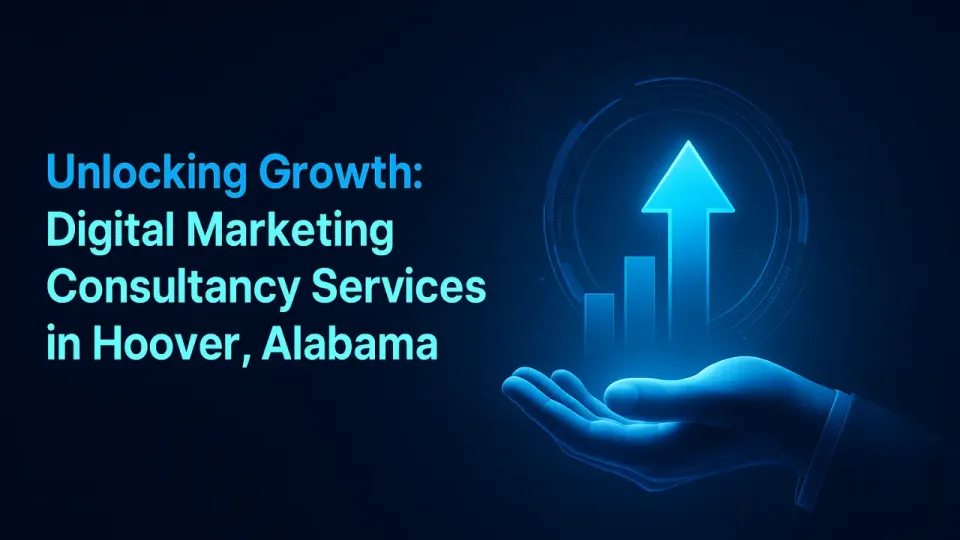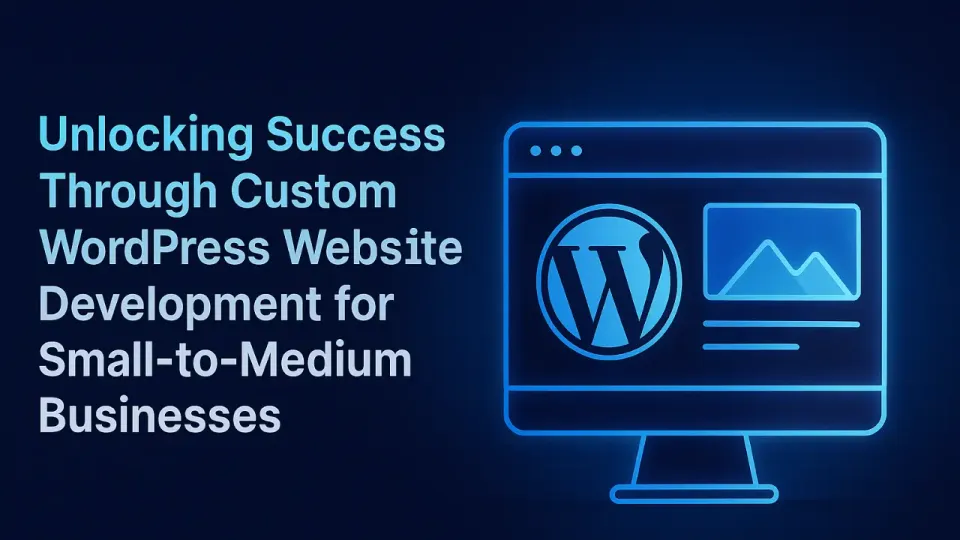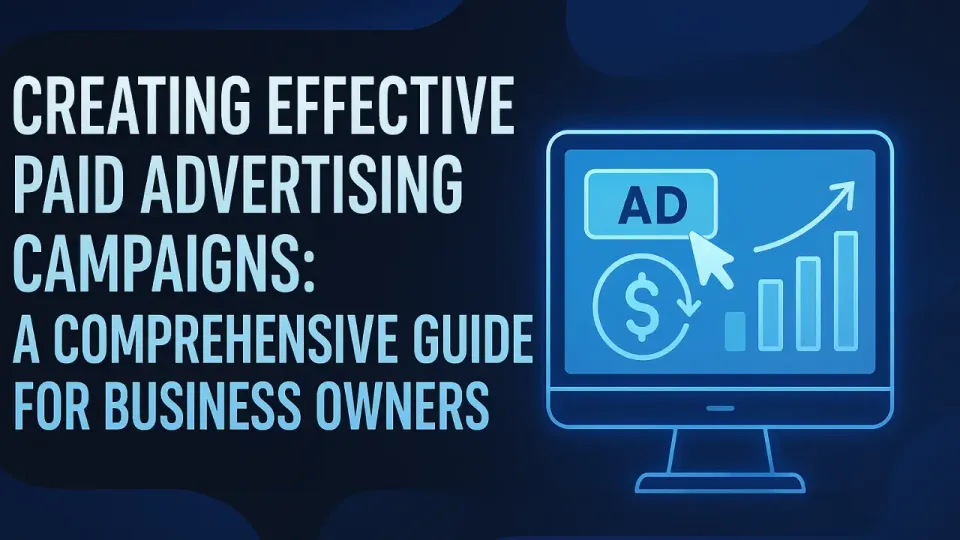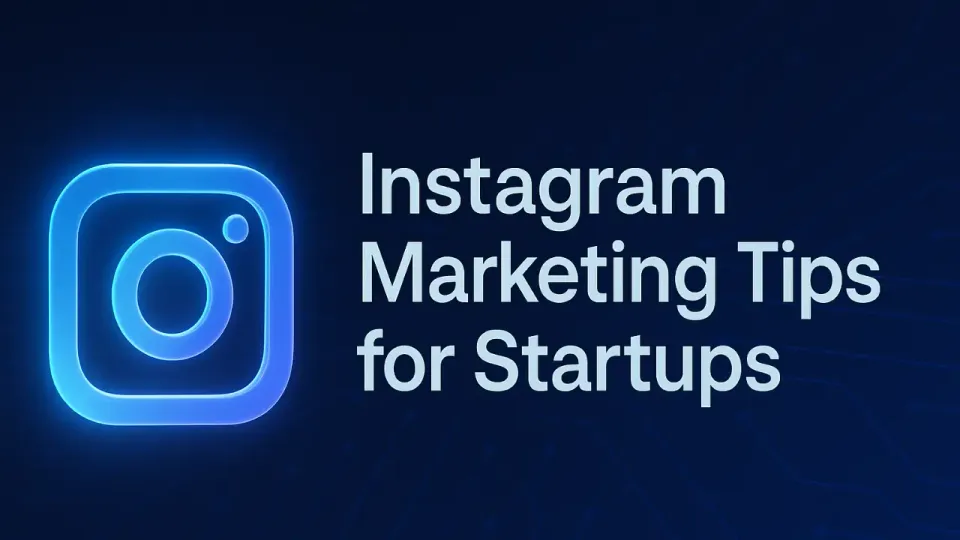How AI is Revolutionizing Digital Marketing for Small Businesses

In today's fast-paced digital landscape, small businesses must constantly evolve to stay competitive. One of the most transformative forces driving this evolution is Artificial Intelligence (AI). Once considered a tool exclusive to large corporations with vast resources, AI has become increasingly accessible, offering significant advantages to businesses of all sizes.
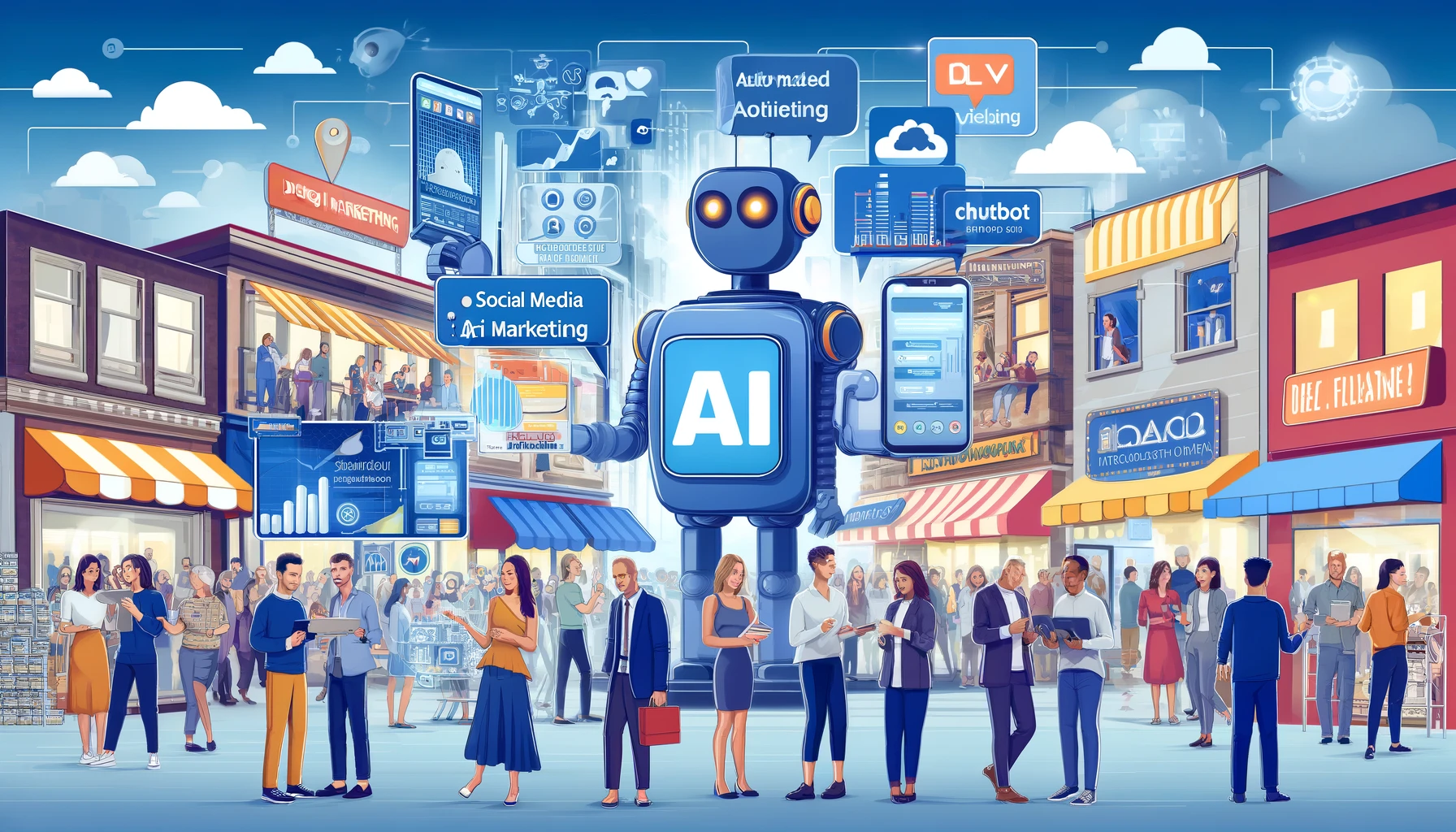
Our Voiceover Process
At Zenogram Digital Marketing Agency, we understand the pivotal role that AI plays in modern marketing strategies. Our mission is to empower small businesses with cutting-edge tools and techniques that drive growth, enhance customer engagement, and maximize marketing efficiency. By leveraging AI, small businesses can now compete on a level playing field, reaching their target audience with unprecedented precision and effectiveness.
In this article, we will explore how AI is revolutionizing digital marketing for small businesses. We'll dive into the ways AI personalizes customer experiences, automates marketing processes, enhances data analytics, and optimizes advertising efforts. With clear and informative insights, we'll show you how embracing AI can transform your marketing strategy, making your business more competitive and successful.
Let's embark on this journey to uncover the incredible potential of AI in digital marketing and how Zenogram can help you harness its power for your business growth.
Understanding AI in Digital Marketing
Artificial Intelligence (AI) is not just a buzzword in the tech industry; it is a powerful tool that is transforming various sectors, including digital marketing. For small businesses, understanding how AI works and its applications in digital marketing can open doors to new opportunities, helping them compete with larger enterprises. This section delves into what AI is, its key technologies, and how these technologies are accessible and beneficial for small businesses.
At its core, AI refers to the simulation of human intelligence processes by machines, particularly computer systems. These processes include learning (the acquisition of information and rules for using it), reasoning (using rules to reach approximate or definite conclusions), and self-correction. In digital marketing, AI encompasses a range of technologies that enhance the ability to analyze data, predict outcomes, and automate tasks, thereby increasing efficiency and effectiveness.
One of the primary AI technologies revolutionizing digital marketing is Machine Learning (ML). Machine Learning allows computers to learn from data and improve their performance over time without being explicitly programmed. In digital marketing, ML algorithms analyze customer data to identify patterns and trends, enabling marketers to make data-driven decisions. For instance, ML can predict customer behavior, segment audiences more precisely, and optimize marketing campaigns for better results.
Another critical AI technology is Natural Language Processing (NLP). NLP enables machines to understand, interpret, and respond to human language. This technology is fundamental in enhancing customer interactions through chatbots and virtual assistants. Chatbots, powered by NLP, can handle customer queries in real time, providing instant support and information. This not only improves customer satisfaction but also frees up valuable time for small business owners and their teams to focus on more strategic tasks.
Computer Vision is also making significant strides in digital marketing. This AI technology allows machines to interpret and understand visual information from the world. In marketing, computer vision can be used to analyze images and videos, enabling marketers to understand visual content's impact and effectiveness. For example, AI-driven tools can analyze social media images to gauge brand sentiment and identify emerging trends, helping businesses tailor their marketing strategies accordingly.
For small businesses, these advanced AI technologies are not just theoretical concepts; they are practical tools that can be integrated into everyday marketing efforts. Many AI-driven marketing tools are designed with user-friendly interfaces, making them accessible even to those without a technical background. These tools often come with built-in analytics and automation features, allowing small businesses to leverage AI without needing to invest in extensive training or additional resources.
One of the most significant advantages of AI in digital marketing for small businesses is its ability to democratize access to sophisticated marketing strategies. Traditionally, advanced marketing techniques and technologies were accessible only to large corporations with substantial budgets. However, AI tools have leveled the playing field, enabling small businesses to implement strategies that were once out of reach. For instance, AI-powered marketing platforms can automate social media posting, email marketing, and customer segmentation, allowing small businesses to maintain a consistent and effective online presence with minimal effort.
Moreover, AI's ability to process and analyze vast amounts of data quickly and accurately provides small businesses with insights that were previously unattainable. These insights can drive more effective marketing strategies, from understanding customer preferences to predicting future trends. For example, AI can analyze customer interactions across multiple channels to identify the most effective marketing messages and delivery times, optimizing engagement and conversion rates.
The impact of AI on digital marketing is further amplified by its continuous learning capability. AI systems improve over time as they process more data, leading to increasingly accurate predictions and more effective marketing strategies. This continuous improvement means that small businesses can stay ahead of the curve, adapting their marketing efforts to changing customer behaviors and market conditions.
In addition to enhancing existing marketing efforts, AI opens up new possibilities for innovation. For instance, AI can facilitate personalized marketing at scale, tailoring messages and offers to individual customers based on their preferences and behaviors. This level of personalization was previously unimaginable for small businesses with limited resources. AI-driven tools can also help small businesses experiment with new marketing channels and strategies, testing different approaches and optimizing them in real-time for maximum impact.
AI is a game-changer for small businesses in the realm of digital marketing. By understanding and leveraging AI technologies such as Machine Learning, Natural Language Processing, and Computer Vision, small businesses can enhance their marketing efforts, gain valuable insights, and compete more effectively in the digital marketplace. AI's ability to democratize access to advanced marketing strategies and its continuous learning capability makes it an indispensable tool for small businesses looking to grow and thrive in today's competitive landscape. Embracing AI in digital marketing is not just an option but a necessity for small businesses aiming to stay relevant and succeed.

Personalized Customer Experiences
In the digital age, personalization has become a cornerstone of effective marketing strategies. Customers today expect tailored experiences that cater to their individual preferences and needs. For small businesses, meeting these expectations can be challenging without the right tools. This is where AI comes into play, offering the ability to create highly personalized customer experiences that drive engagement and loyalty. In this section, we will explore the importance of personalized marketing, how AI enables hyper-personalization through data analysis and customer insights, and examples of AI-driven personalization tools that benefit small businesses.
Personalized marketing is crucial in today's competitive landscape for several reasons. Firstly, it helps businesses stand out by offering unique, relevant experiences that resonate with their target audience. Secondly, personalization fosters stronger relationships between businesses and customers, leading to increased loyalty and repeat business. Lastly, personalized marketing campaigns tend to be more effective, resulting in higher conversion rates and better return on investment (ROI).
AI enables hyper-personalization by analyzing vast amounts of data and extracting actionable insights. This process starts with data collection, where AI gathers information from various sources, such as website interactions, social media activity, purchase history, and customer feedback. By analyzing this data, AI can identify patterns and trends that provide a deep understanding of customer behavior, preferences, and needs.
One of the most powerful ways AI enhances personalization is through predictive analytics. Predictive analytics uses historical data to forecast future behavior, allowing businesses to anticipate customer needs and tailor their marketing efforts accordingly. For example, AI can predict which products a customer is likely to be interested in based on their past purchases and browsing history. This enables businesses to recommend relevant products, increasing the likelihood of a sale.
Another way AI drives personalization is through real-time data analysis. AI-powered tools can analyze customer interactions as they happen, providing instant insights that enable businesses to deliver personalized experiences in real time. For instance, AI can track a customer's journey on a website, identifying which pages they visit and how long they stay on each page. Based on this information, the AI system can offer personalized recommendations or discounts, enhancing the overall customer experience and increasing engagement.
Several AI-driven personalization tools are particularly beneficial for small businesses. One such tool is personalized email marketing software. These platforms use AI to analyze customer data and segment audiences based on various criteria, such as demographics, behavior, and preferences. By creating highly targeted email campaigns, small businesses can deliver relevant content that resonates with each segment, resulting in higher open rates, click-through rates, and conversions.
AI chatbots are another powerful tool for personalization. These intelligent virtual assistants can engage with customers in real time, providing personalized support and recommendations. For example, an AI chatbot on an e-commerce site can assist customers in finding products that match their preferences, answer questions, and even process orders. By offering a personalized and seamless shopping experience, chatbots help increase customer satisfaction and loyalty.
Personalized website content is also a significant area where AI makes a difference. AI-powered content management systems (CMS) can dynamically adjust website content based on individual user profiles. This means that each visitor to a website can see personalized product recommendations, tailored offers, and relevant content that aligns with their interests. Such dynamic content personalization enhances the user experience, making customers feel valued and understood.
Social media is another domain where AI-driven personalization can be highly effective. AI tools can analyze social media interactions to understand customer sentiments and preferences. By leveraging this data, businesses can create personalized social media campaigns that resonate with their audience. For instance, AI can help identify the best times to post, the type of content that engages the most, and the specific messaging that appeals to different audience segments. This targeted approach increases the effectiveness of social media marketing efforts, driving higher engagement and brand loyalty.
Furthermore, AI-powered recommendation engines are transforming the way businesses suggest products and services to their customers. These engines analyze customer behavior and preferences to provide personalized recommendations. For example, streaming services like Netflix and Spotify use AI recommendation engines to suggest movies and music based on users' viewing and listening history. Small businesses can implement similar AI-driven recommendation systems on their websites or apps to enhance the customer experience and boost sales.
The benefits of AI-driven personalization are clear. By delivering tailored experiences, businesses can increase customer satisfaction, loyalty, and engagement. For small businesses, AI offers an opportunity to compete with larger companies by providing the same level of personalized service that customers have come to expect. This level of personalization not only differentiates a business from its competitors but also creates a deeper connection with customers, driving long-term success.
AI is a powerful enabler of personalized customer experiences in digital marketing. By leveraging AI technologies for data analysis, predictive analytics, and real-time insights, small businesses can create highly targeted and relevant marketing campaigns. AI-driven personalization tools, such as personalized email marketing software, chatbots, dynamic website content, social media analysis, and recommendation engines, empower small businesses to meet and exceed customer expectations. Embracing AI for personalization is not just a strategic advantage; it is essential for small businesses aiming to thrive in today's competitive market.
"Joining this community has been a game-changer for staying updated on the latest trends & events!" - John B.
Automation of Marketing Processes
In the dynamic world of digital marketing, efficiency is key. For small businesses with limited resources, automating repetitive tasks can free up valuable time, allowing them to focus on strategic initiatives that drive growth. AI-powered automation is transforming the marketing landscape by streamlining processes, enhancing productivity, and delivering more consistent results. This section explores the significance of marketing automation, the role of AI in automating marketing processes, and real-world examples of small businesses that have successfully implemented AI-driven automation.
Marketing automation involves using technology to streamline and automate marketing tasks and workflows. This can include a range of activities, from email marketing and social media management to customer segmentation and campaign analytics. By automating these processes, businesses can ensure that their marketing efforts are timely, relevant, and efficient.
AI takes marketing automation to the next level by introducing advanced capabilities that go beyond simple task automation. AI-powered tools can analyze vast amounts of data, identify patterns, and make real-time decisions that enhance marketing effectiveness. For small businesses, this means being able to execute sophisticated marketing strategies without the need for extensive resources or expertise.
One of the most significant areas where AI is making an impact is in email marketing. Traditional email marketing campaigns can be time-consuming to set up and manage. AI-driven email marketing platforms automate the entire process, from audience segmentation and content creation to sending and analyzing campaigns. These platforms use machine learning algorithms to segment audiences based on behavior, preferences, and engagement levels, ensuring that each recipient receives highly relevant content.
AI also optimizes email content by analyzing past performance data to determine which subject lines, images, and calls to action are most effective. This continuous optimization process results in higher open rates, click-through rates, and conversions. For instance, a small business using an AI-powered email marketing platform can automatically send personalized product recommendations to customers based on their browsing and purchase history, leading to increased sales and customer satisfaction.
Social media management is another area where AI-driven automation is proving invaluable. Managing multiple social media accounts, creating content, and scheduling posts can be overwhelming for small businesses. AI-powered social media management tools automate these tasks, allowing businesses to maintain an active and engaging online presence with minimal effort. These tools can automatically schedule posts at optimal times, curate content based on trending topics, and even respond to customer inquiries in real time.
For example, AI can analyze social media engagement data to identify the best times to post, ensuring that content reaches the maximum number of followers. Additionally, AI tools can generate content suggestions based on trending topics and hashtags, helping businesses stay relevant and engaging. By automating these processes, small businesses can focus on creating high-quality content and building relationships with their audience.
Customer segmentation is another critical aspect of marketing that benefits from AI automation. Accurate segmentation is essential for delivering personalized and relevant marketing messages. AI-powered tools can analyze customer data from various sources, such as purchase history, website interactions, and demographic information, to create detailed customer segments. These segments can then be used to tailor marketing campaigns, ensuring that each message resonates with its intended audience.
For example, a small online retailer can use AI to segment customers based on their buying behavior, such as frequent buyers, occasional shoppers, and first-time visitors. By targeting each segment with personalized offers and recommendations, the retailer can increase engagement and drive more sales. AI also enables dynamic segmentation, where customer segments are continuously updated based on real-time data, ensuring that marketing efforts remain relevant and effective.
AI-driven analytics and reporting tools further enhance marketing automation by providing actionable insights that inform decision-making. These tools can automatically generate detailed reports on campaign performance, customer behavior, and ROI, allowing businesses to measure the effectiveness of their marketing efforts. By identifying what works and what doesn't, small businesses can optimize their strategies for better results.
For instance, an AI-powered analytics tool can track the performance of a social media campaign in real time, highlighting which posts are generating the most engagement and conversions. Based on this data, the business can adjust its strategy, focusing on the types of content that resonate most with its audience. This data-driven approach ensures that marketing efforts are continuously refined and improved.
Real-world examples of small businesses successfully implementing AI-driven automation demonstrate the tangible benefits of these technologies. For example, a local bakery used an AI-powered email marketing platform to automate its email campaigns. By segmenting its audience and sending personalized promotions, the bakery increased its email open rates by 40% and saw a significant boost in online orders.
Another example is a small travel agency that used AI-powered social media management tools to automate its content posting and engagement. By scheduling posts at optimal times and responding to customer inquiries in real time, the agency grew its social media following by 50% and saw a substantial increase in bookings.
AI-powered automation is revolutionizing marketing processes for small businesses, making them more efficient, effective, and scalable. By automating repetitive tasks such as email marketing, social media management, and customer segmentation, small businesses can focus on strategic initiatives that drive growth. AI-driven tools not only streamline processes but also enhance marketing effectiveness through data-driven insights and continuous optimization. For small businesses looking to stay competitive in today's digital landscape, embracing AI-driven automation is not just an advantage—it's a necessity.
Enhanced Data Analytics and Insights
In the digital marketing realm, data is king. The ability to collect, analyze, and interpret data is crucial for businesses aiming to make informed decisions and optimize their marketing strategies. However, for small businesses, managing and making sense of vast amounts of data can be daunting. This is where AI steps in, offering advanced analytics capabilities that transform raw data into actionable insights. In this section, we will explore the role of AI in data analytics, how it helps small businesses understand customer behavior and improve marketing strategies, and the tools and platforms available for AI-powered analytics.
Data analytics involves examining datasets to uncover patterns, correlations, and insights that can inform business decisions. Traditional data analytics methods often require significant time and expertise, making it challenging for small businesses to leverage their data effectively. AI-driven analytics, however, automates and enhances this process, allowing small businesses to harness the power of their data without the need for extensive resources or specialized skills.
One of the primary ways AI enhances data analytics is through machine learning algorithms that can process and analyze vast amounts of data quickly and accurately. These algorithms learn from the data, identifying patterns and trends that may not be immediately apparent to human analysts. For small businesses, this means gaining deeper insights into customer behavior, market trends, and campaign performance, which can be used to refine marketing strategies and drive better results.
AI-driven analytics tools can provide a comprehensive understanding of customer behavior by analyzing data from multiple touchpoints, including website visits, social media interactions, email engagements, and purchase history. By integrating data from these sources, AI can create a holistic view of the customer journey, identifying key moments of engagement and opportunities for optimization.
For example, AI can analyze website analytics to determine which pages are most visited, how long visitors stay on each page, and the paths they take through the site. This information can help small businesses identify popular content, optimize site navigation, and improve the overall user experience. Additionally, AI can segment visitors based on their behavior, enabling businesses to deliver personalized content and offers that resonate with each segment.
Another significant advantage of AI in data analytics is predictive analytics, which uses historical data to forecast future outcomes. Predictive analytics can help small businesses anticipate customer needs, identify emerging trends, and make proactive decisions. For instance, AI can analyze past sales data to predict which products are likely to be in high demand during certain periods, allowing businesses to adjust their inventory and marketing strategies accordingly.
AI-powered analytics tools also excel in real-time data processing, providing instant insights that enable businesses to respond quickly to changing conditions. Real-time analytics can be particularly valuable in social media marketing, where timely responses to trending topics and customer interactions can significantly impact engagement and brand perception. AI tools can monitor social media activity, identify trending hashtags and conversations, and suggest timely content ideas, helping businesses stay relevant and engaging.
Several AI-driven analytics platforms are designed specifically for small businesses, offering user-friendly interfaces and powerful capabilities. Google Analytics, enhanced with AI features, provides detailed insights into website traffic, user behavior, and conversion rates. The platform's AI-driven insights can identify trends and anomalies, offering recommendations for improving site performance and marketing effectiveness.
HubSpot is another popular platform that leverages AI to provide comprehensive marketing analytics. HubSpot's AI tools can analyze customer interactions across various channels, track campaign performance, and generate reports that highlight key metrics and insights. By using HubSpot, small businesses can gain a deeper understanding of their marketing efforts and identify areas for improvement.
AI-powered customer relationship management (CRM) systems, such as Salesforce, also offer advanced analytics capabilities. These systems can analyze customer data to identify patterns and trends, predict customer behavior, and provide personalized recommendations for sales and marketing activities. For example, Salesforce's Einstein AI can analyze customer interactions to predict which leads are most likely to convert, enabling businesses to prioritize their efforts and increase sales efficiency.
The benefits of AI-driven analytics extend beyond understanding customer behavior to optimizing overall marketing strategies. AI can identify which marketing channels and tactics are most effective, allowing businesses to allocate their resources more efficiently. For instance, AI can analyze the performance of different advertising campaigns to determine which ones generate the highest ROI, enabling businesses to focus their budget on the most effective strategies.
AI can also enhance A/B testing by automating the process and providing more accurate results. Traditional A/B testing involves manually setting up tests and analyzing results, which can be time-consuming and prone to human error. AI-driven A/B testing tools can automate the setup, execution, and analysis of tests, providing real-time insights into which variations perform best. This allows businesses to optimize their marketing campaigns quickly and effectively.
Real-world examples illustrate the power of AI-driven analytics for small businesses. A small e-commerce store, for instance, used AI analytics to analyze customer data and identify patterns in purchasing behavior. By understanding which products were frequently bought together, the store implemented personalized product recommendations, leading to a 25% increase in average order value. Another example is a local restaurant that used AI analytics to track customer feedback and social media mentions. By analyzing this data, the restaurant identified common themes in customer reviews and made targeted improvements to its menu and service, resulting in higher customer satisfaction and repeat business.
AI-driven analytics and insights are transforming the way small businesses approach digital marketing. By automating data analysis and providing actionable insights, AI enables businesses to understand customer behavior, optimize marketing strategies, and make informed decisions. AI-powered tools and platforms, such as Google Analytics, HubSpot, and Salesforce, offer user-friendly solutions that empower small businesses to leverage their data effectively. Embracing AI-driven analytics is essential for small businesses looking to stay competitive and drive growth in today's data-driven marketing landscape.
Conclusion
Artificial Intelligence is undeniably transforming the landscape of digital marketing, offering small businesses powerful tools to compete effectively in a crowded marketplace. By leveraging AI technologies, small businesses can personalize customer experiences, automate marketing processes, and gain deep insights through enhanced data analytics. These capabilities, once reserved for large corporations, are now accessible to businesses of all sizes, democratizing advanced marketing strategies and leveling the playing field.
AI-driven personalization allows small businesses to engage customers on a deeper level, delivering tailored experiences that resonate and drive loyalty. Automation frees up valuable time and resources, enabling businesses to focus on strategic growth initiatives rather than mundane tasks. Enhanced data analytics provides actionable insights that inform smarter decision-making and optimize marketing efforts for better results. Together, these AI applications empower small businesses to achieve higher efficiency, effectiveness, and scalability in their marketing efforts.
For small business owners seeking to navigate the complexities of AI and digital marketing, partnering with experts like Zenogram Digital Marketing Agency can make a significant difference. Zenogram’s professional and authoritative approach ensures that clients receive clear and informative guidance tailored to their unique needs. With a focus on innovation, customer satisfaction, and measurable results, Zenogram helps businesses harness cutting-edge AI tools and techniques to drive growth and success.
As the digital marketing landscape continues to evolve, embracing AI is not just an option—it’s a necessity. By leveraging AI technologies, small businesses can stay ahead of the curve, adapting to changing market conditions and customer behaviors with agility and precision. Zenogram Digital Marketing Agency stands ready to assist small businesses in this journey, offering expertise and support to maximize the potential of AI-driven marketing strategies.
The future of digital marketing lies in the intelligent application of AI. Small businesses that embrace this technology can expect to see significant improvements in customer engagement, operational efficiency, and overall marketing effectiveness. With the right tools and expert guidance from trusted partners like Zenogram Digital Marketing Agency, small businesses can confidently navigate the AI revolution and achieve sustainable growth in an increasingly competitive digital world.
"Joining this community has been a game-changer for staying updated on the latest trends & events!" - John B.


